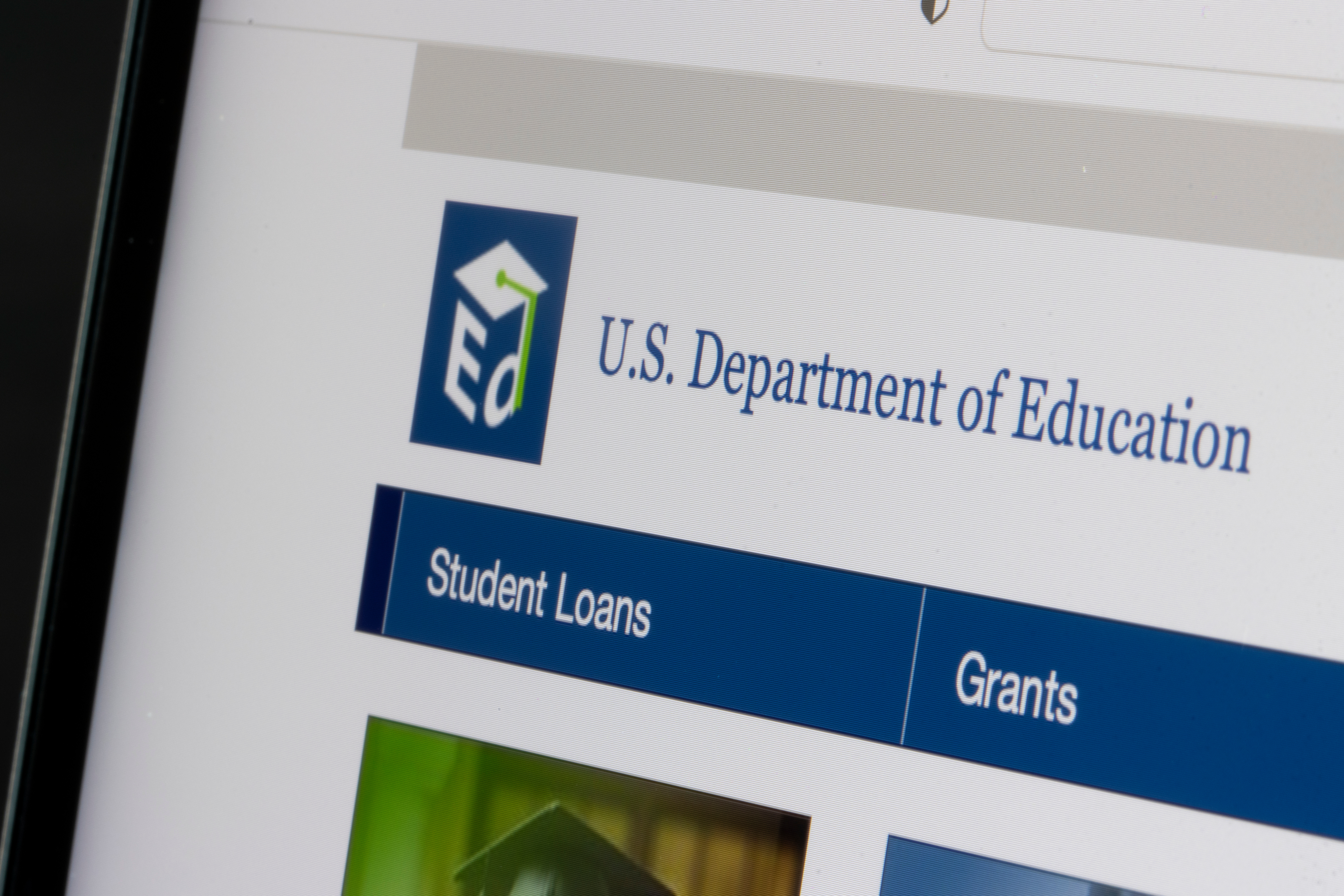If you’re a doctor juggling student loans, you might be wondering what is the impact of student loan forgiveness on credit score. After years of paying off student loans, especially those for medical school, you may feel a sense of relief when you qualify for student loan forgiveness. But, what about your credit score? Does student loan forgiveness for doctors impact your credit score? Let’s dive into the details and explore how loan forgiveness for doctors can influence your financial health.

Doctors and Student Loan Forgiveness Programs: What is Student Loan Forgiveness?
Student loan forgiveness is a program designed to reduce or completely eliminate your student loan debt. Various student loan forgiveness programs for doctors are available, including Public Service Loan Forgiveness (PSLF), Income-Driven Repayment (IDR) forgiveness, and others specific to the healthcare sector. These programs aim to provide financial relief for doctors who dedicate a portion of their career to serving in public or underserved areas. As a doctor, you may be eligible for student loan forgiveness for healthcare workers after making a certain number of qualifying payments, typically 10 to 25 years, depending on the program. Once you meet the program’s requirements, your remaining student loan balance can be forgiven, offering a path toward improved financial health for doctors.
Does Student Loan Forgiveness Affect Your Credit Score? How doctors can maintain a good credit score during loan forgiveness?
Are you wondering how student loans affect credit scores? The short answer: It depends. Student loan forgiveness does not directly impact your credit score in a negative or positive way, but there are several factors worth considering that could influence your credit score during the loan forgiveness process. Understanding how student loan forgiveness impacts credit is crucial for managing your overall financial health.
1. Financial Planning for Physicians: Loan Forgiveness Tips
When your student loan is forgiven, the loan balance is wiped out, which may improve your credit score in certain situations. If your student loan forgiveness reduces your total outstanding debt, it could positively impact your debt-to-income ratio (DTI), a key factor in determining your credit score for doctors. However, this benefit is often contingent on whether your loans are reported as forgiven or settled. If forgiven loans are reported as “settled” or “paid less than owed,” it could have a minor negative impact on your credit score during student loan forgiveness. The impact of student loan forgiveness on credit score here depends on how the loan servicer reports the forgiveness. Generally, though, many borrowers find that their credit scores recover quickly once the student loan forgiveness process is completed.
2. Making On-Time Payments—A Key Step Toward Forgiveness and Financial Planning for Doctors
How student loan forgiveness programs help doctors improve credit? Let’s be honest: life as a doctor is not easy, and keeping track of student loan payments can feel like just another task on your endless to-do list. But here’s the thing—making consistent, on-time payments is more than just a box to check. It’s one of the most important ways to protect and even boost your credit score while working toward student loan forgiveness. At Salve we offer a Financial Planning Tool designed with doctors just like you in mind. Join our waitlist right now not to miss the app launch and you will never miss any payment again.
If you’ve been sticking to your repayment plan, especially if you’re enrolled in an income-driven repayment (IDR) program, you’re doing more than just reducing your loan balance. You’re building a solid track record that tells lenders, “Hey, I’m responsible with my money.” That positive payment history can actually give your credit score a lift even before your loans are forgiven. So, yes, those monthly payments are much more important than you might have thought when it comes to student loan forgiveness for doctors.

3. Loan Forgiveness and Debt-to-income Ratio for Doctors
Here’s a real-world benefit of student loan forgiveness: once your loans are gone, your debt-to-income ratio (DTI) improves, and that can open up some big financial opportunities. Think about it—fewer loans mean you’re carrying less debt compared to your income. Lenders love that because it makes you look less risky.
For doctors, this could be a game-changer. Maybe you’re dreaming about buying your first home or even investing in your own practice. When the debt-to-income ratio for doctors drops, you’re more likely to get approved for loans and at better terms. It’s like clearing a hurdle that’s been holding you back financially.
So while student loan forgiveness is about getting rid of debt, it’s also about giving you more freedom to plan for the future. Whether it’s purchasing a home, starting a business, or just having some breathing room, a lower DTI can make it all a lot easier.
4. How Student Loans Affect Credit Scores–Delayed Impact of Student Loan Forgiveness onCredit Score
The impact on your credit score may not be immediate. It may take a few months after your loans are forgiven for your credit score to reflect any changes. Some loan servicers may take time to process the forgiveness, and the credit reporting agencies may also need time to update your loan status. During this period, if you’ve kept up with your payments, your credit score might remain unaffected or even improve over time.
How Doctors Can Ensure Student Loan Forgiveness Doesn’t Harm Their Credit
As a doctor, it’s essential to protect your credit score while navigating the student loan forgiveness process. Here are a few tips to ensure your credit score remains intact:
- Stay on Top of Your Payments – Keep track of your student loan payments and ensure you’re making them on time. Consider setting up automatic payments to avoid any missed payments.
- Monitor Your Credit – Regularly check your credit score and reports to ensure there are no discrepancies or errors related to your student loan forgiveness process. If there are any issues, contact your loan servicer promptly to address them.
- Understand Loan Forgiveness Reporting – Be aware of how your loan servicer reports your loan forgiveness. Ideally, your loan forgiveness should be reported as a “paid in full” status rather than “settled” to avoid a negative impact of student loan forgiveness on credit score
- Consider Tailored Financial Services – For doctors like you, personalized financial planning can help. Some banking services specialize in assisting doctors with managing student loan debt, helping you maximize your benefits while ensuring your financial health, including your credit score.

Final Thoughts: Protecting Your Financial Future–Doctors and Student Loan Forgiveness Programs
As a doctor, you’ve worked hard to get where you are, and student loan forgiveness can feel like a well-earned relief. But let’s face it—understanding the impact of student loan forgiveness on your credit score can be a little challenging. The good news? With the right steps, loan forgiveness probably won’t hurt your credit score. In fact, it might even set you up for greater financial flexibility.
Your financial future is just as vital as your career in medicine. After all, you’ve spent years investing in your education—now it’s time to ensure that investment pays off in every aspect of your life. Staying on top of your credit score during the forgiveness process is crucial. Regularly monitor your reports, make on-time payments, and don’t hesitate to reach out for guidance if you need it. If you’re participating in Public Service Loan Forgiveness for doctors or exploring Income-Driven Repayment forgiveness, knowing how these programs affect your credit is essential.
For a personalized approach to your financial journey, consider tailored financial planning for physicians, like Salve—a financial tool created specifically for doctors like you. At Salve, we understand the unique challenges of managing medical school debt while balancing your professional and personal goals. With customized advice and tools, Salve can help you navigate loan forgiveness programs for doctors, protect your credit score, and take control of your financial future.
If you’re unsure about the best path forward, it’s worth exploring financial solutions that cater to your unique needs, such as tracking your debt-to-income ratio for doctors. With the right support and strategies, you’ll not only clear your student debt but also build a strong foundation for future opportunities—whether that’s buying a home, starting a practice, or simply enjoying peace of mind.
You’ve got this, and with Salve in your corner, you’re even better prepared for what’s next! Do you want to know more? Check our resources page!

